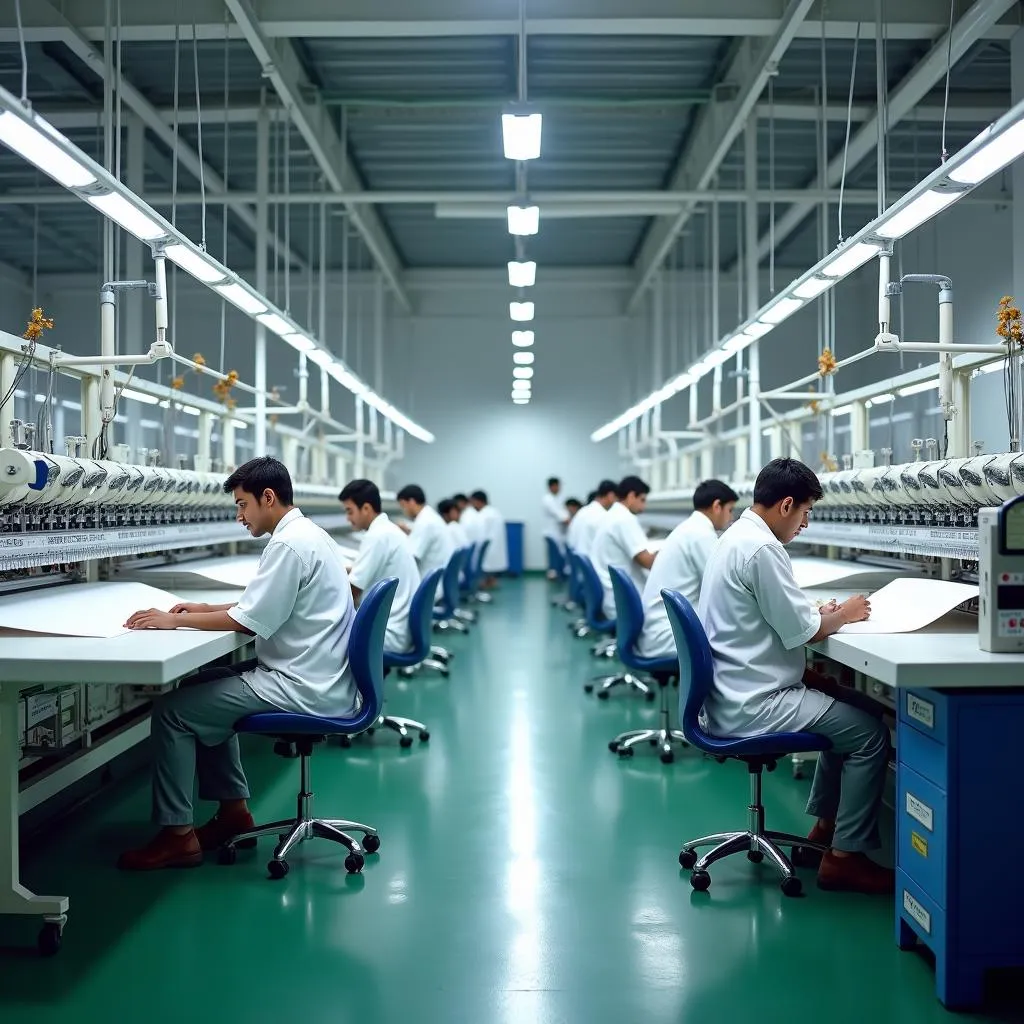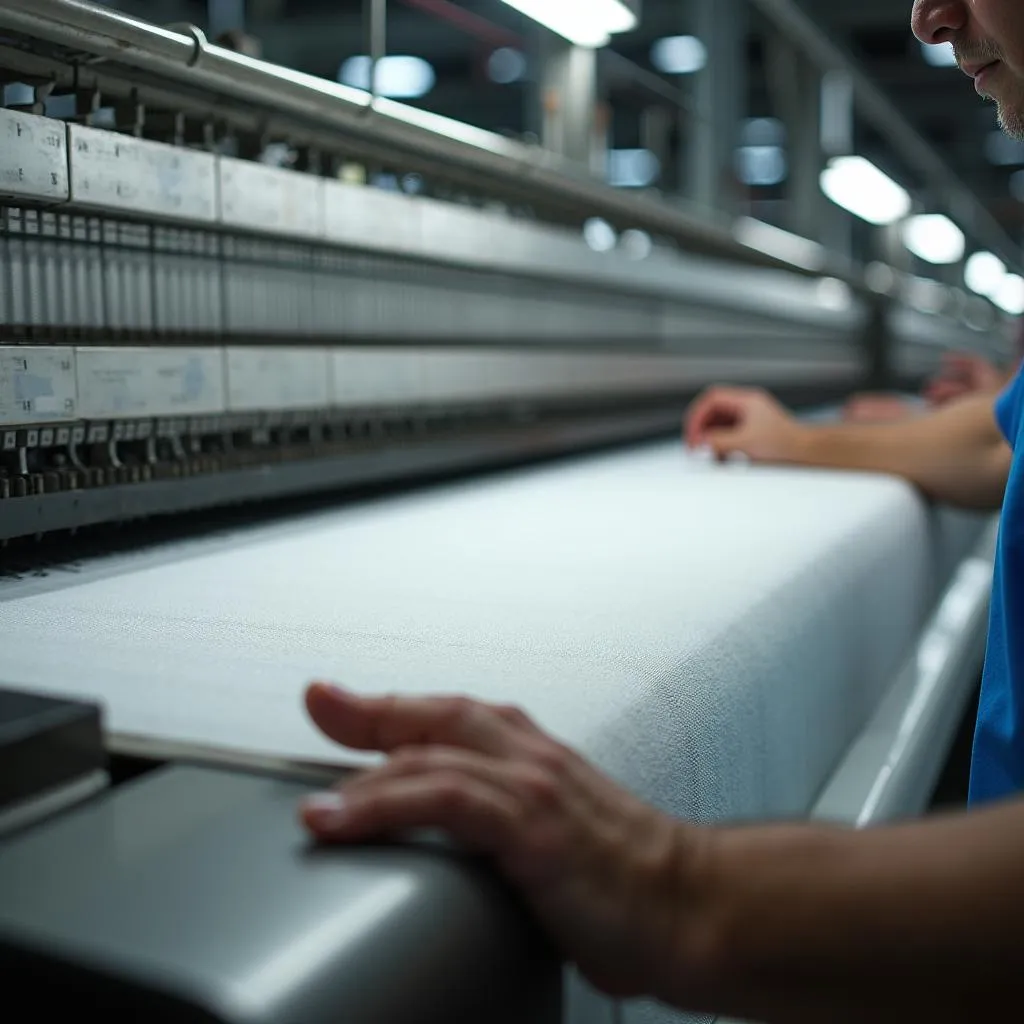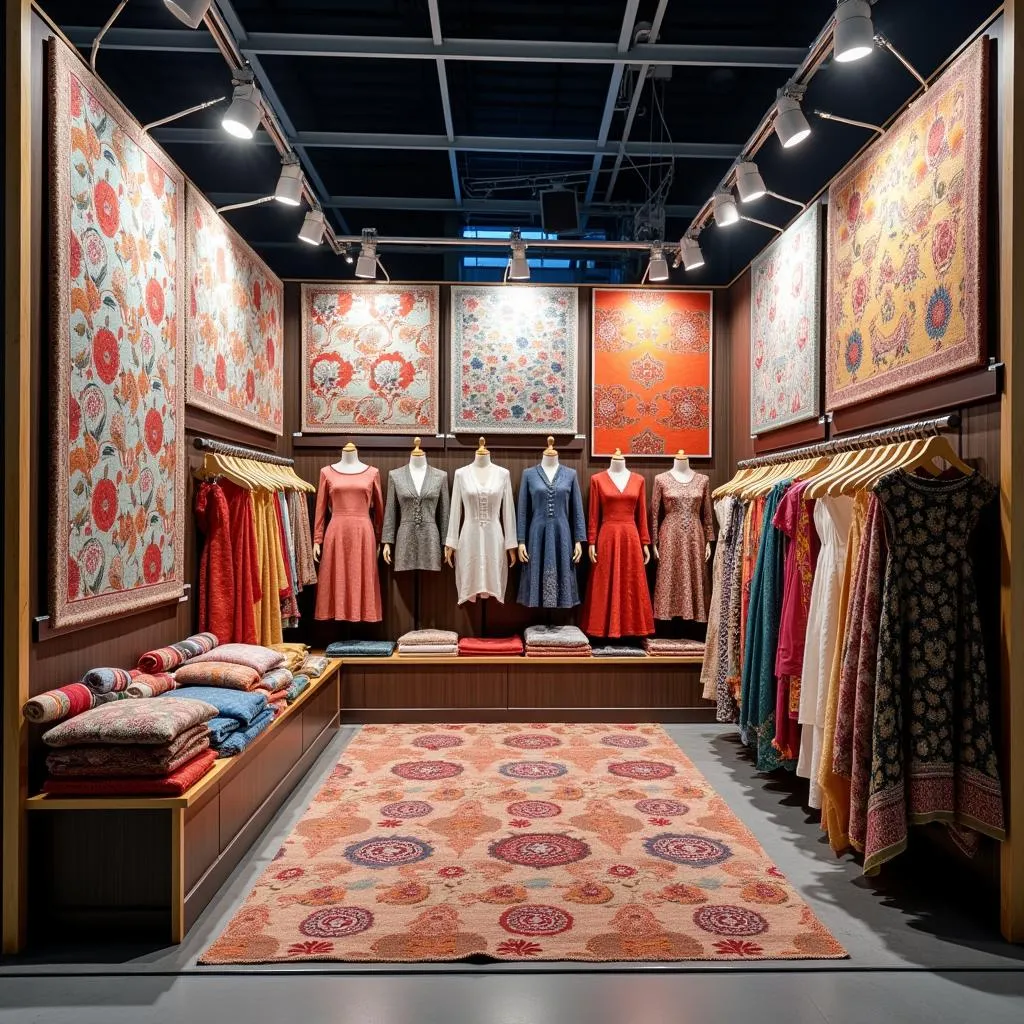Pakistan’s textile industry is a cornerstone of its economy, contributing significantly to the nation’s GDP and employing a large portion of the workforce. This sector is renowned globally for its production of high-quality cotton yarn, fabrics, and finished garments. To understand the driving force behind this industry, let’s delve into the Top 20 Textile Companies In Pakistan.
Key Players Shaping the Pakistani Textile Landscape
The textile industry in Pakistan is characterized by a blend of large-scale conglomerates and specialized manufacturers. These companies have not only established a strong domestic presence but also export their products to international markets, contributing significantly to Pakistan’s foreign exchange reserves.
Here’s a closer look at some of the leading textile companies in Pakistan:
1. Nishat Mills Limited
Nishat Mills Limited is a vertically integrated textile company, encompassing spinning, weaving, processing, and garment manufacturing. Its diverse product portfolio caters to a wide range of international clients, making it a prominent name in the global textile market.
2. Gul Ahmed Textile Mills Limited
Renowned for its innovative designs and quality fabrics, Gul Ahmed Textile Mills Limited is a household name in Pakistan. It offers a wide array of products, including apparel, home textiles, and accessories, catering to both domestic and international markets.
3. Interloop Limited
Interloop Limited is a world-leading manufacturer of socks, hosiery, and apparel. Its state-of-the-art manufacturing facilities and commitment to sustainability have earned it recognition from renowned global brands.
 Interloop Limited factory in Pakistan
Interloop Limited factory in Pakistan
4. Masood Textile Mills Limited
Masood Textile Mills Limited specializes in the production of high-quality yarn and woven fabrics. Its commitment to innovation and customer satisfaction has established it as a trusted supplier to leading apparel brands worldwide.
5. Feroze1888 Mills Limited
Feroze1888 Mills Limited is a vertically integrated textile company with a strong focus on home textiles. It offers a diverse range of bed linen, kitchen textiles, and institutional textiles, catering to the needs of customers globally.
6. Alkaram Textile Mills Limited
Alkaram Textile Mills Limited is a leading manufacturer of apparel fabrics, home textiles, and garments. Its extensive retail network across Pakistan and its growing international presence make it a prominent player in the textile industry.
7. Sapphire Textile Mills Limited
Sapphire Textile Mills Limited is renowned for its high-quality fabrics and trendy designs. Its focus on innovation and sustainability has earned it recognition from international buyers and industry associations.
8. Chenab Limited
Chenab Limited is a leading manufacturer of yarn, woven fabrics, and home textile products. Its commitment to quality and innovation has made it a preferred supplier to global brands and retailers.
 Chenab Limited's advanced weaving looms
Chenab Limited's advanced weaving looms
9. Crescent Textile Mills Limited
Crescent Textile Mills Limited is a vertically integrated textile company specializing in yarn, woven fabrics, and home textiles. Its focus on ethical sourcing and sustainable production practices has earned it accolades from international organizations.
10. Din Textile Mills Limited
Din Textile Mills Limited is a leading manufacturer of yarn, fabrics, and garments. Its commitment to innovation and technology has enabled it to produce high-quality products that meet the evolving demands of the global textile market.
Navigating the Pakistani Textile Industry
What makes these companies stand out?
- Vertical Integration: Many of these companies operate across the entire textile value chain, from spinning to garment manufacturing. This vertical integration allows for greater control over quality and cost efficiency.
- Focus on Innovation: These companies are constantly investing in research and development to create innovative products and processes that meet the evolving demands of the global market.
- Sustainability: Many Pakistani textile companies have adopted sustainable practices, such as reducing water consumption and using eco-friendly dyes, to minimize their environmental impact.
Challenges and Opportunities:
While the Pakistani textile industry has significant potential, it also faces challenges such as rising energy costs, competition from other textile-producing countries, and the need for technological upgradation. However, the government’s support through various initiatives and the industry’s focus on innovation and sustainability present immense opportunities for growth.
Conclusion: The Future of Pakistani Textiles
The top 20 textile companies in Pakistan play a crucial role in driving the industry’s growth and enhancing its global reputation. Their commitment to innovation, sustainability, and customer satisfaction is key to securing the future of Pakistani textiles on the world stage. As the industry continues to evolve, these companies are expected to lead the way in adopting new technologies, exploring new markets, and creating sustainable solutions for a brighter future.
 Pakistani textiles displayed in a global market
Pakistani textiles displayed in a global market
FAQs
-
What is the main export market for Pakistani textiles?
- The United States, Europe, and Asia are the major export markets for Pakistani textiles.
-
What are the key challenges faced by the Pakistani textile industry?
- Rising energy costs, competition from other textile-producing countries, and the need for technological upgradation are some of the challenges.
-
What is the government doing to support the textile industry?
- The government has introduced various policies and initiatives to promote investment, reduce energy costs, and encourage exports in the textile sector.
Need Assistance?
For any inquiries or support related to the textile industry in Pakistan, feel free to reach out to us:
Phone: +923337849799
Email: news.pakit@gmail.com
Address: Dera Ghazi Khan Rd, Rakhni, Barkhan, Balochistan, Pakistan.
Our dedicated customer support team is available 24/7 to assist you.